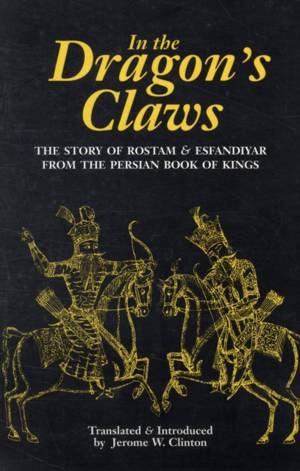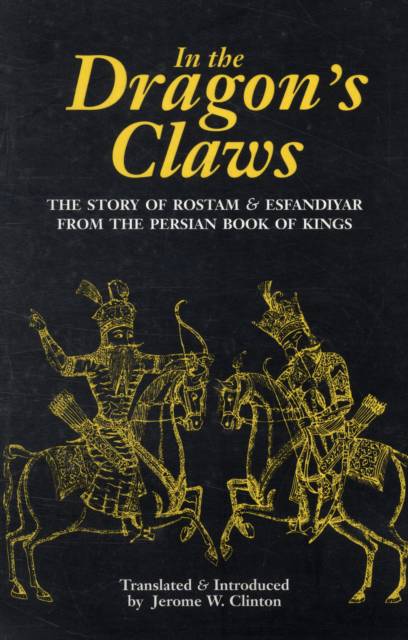
Bedankt voor het vertrouwen het afgelopen jaar! Om jou te bedanken bieden we GRATIS verzending (in België) aan op alles gedurende de hele maand januari.
- Afhalen na 1 uur in een winkel met voorraad
- In januari gratis thuislevering in België
- Ruim aanbod met 7 miljoen producten
Bedankt voor het vertrouwen het afgelopen jaar! Om jou te bedanken bieden we GRATIS verzending (in België) aan op alles gedurende de hele maand januari.
- Afhalen na 1 uur in een winkel met voorraad
- In januari gratis thuislevering in België
- Ruim aanbod met 7 miljoen producten
Zoeken
In the Dragon's Claws
The Story of Rostam & Esfandiyar from the Persian Book of Kings
Abolqasem Ferdowsi
Paperback | Engels
€ 16,95
+ 33 punten
Omschrijving
The story of Rostam and Esfandiyar is one of the most moving tragedies in Ferdowsis epic Shahnameh. In this story, Esfandiyar, the designated heir to the throne of Iran, has just returned in triumph from his campaign against the shah of Turan. He has slain Arjasp, Irans greatest enemy, captured his family and treasury, and liberated his own sisters from their captivity. He expects that his father, Goshtasp, will now abdicate the throne of Iran in his favor, as he had swornto. Goshtasp, however, is not yet ready to honor his promise. Instead he sets his son yet another task as a condition of his abdication. He must bring Irans greatest hero, Rostam, back to the court in chains. For Rostam has neither come to court to honor Goshtasp nor sent him a letter declaring loyalty. Esfandiyar recognizes this task as simply a way to put his own life at risk, and says as much. Yet he cannot refuse his fathers command. The story of Rostam and Esfandiyar displays a surprisingly modern skepticism about the values typically associated with Ferdowsis epic.It expresses a profound ambivalence about the demands of heroism, and is sharply critical of a monarch who exploits the courage and loyalty of his heroes to further his own selfish ends.
Specificaties
Betrokkenen
- Auteur(s):
- Vertaler(s):
- Uitgeverij:
Inhoud
- Aantal bladzijden:
- 144
- Taal:
- Engels
Eigenschappen
- Productcode (EAN):
- 9780934211567
- Verschijningsdatum:
- 1/09/1999
- Uitvoering:
- Paperback
- Formaat:
- Trade paperback (VS)
- Afmetingen:
- 141 mm x 217 mm
- Gewicht:
- 213 g

Alleen bij Standaard Boekhandel
+ 33 punten op je klantenkaart van Standaard Boekhandel
Beoordelingen
We publiceren alleen reviews die voldoen aan de voorwaarden voor reviews. Bekijk onze voorwaarden voor reviews.









